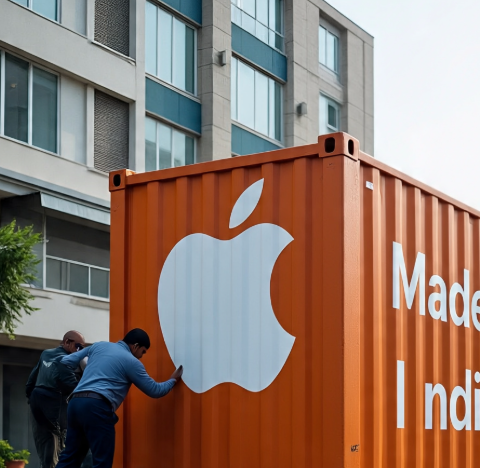Intro:
Mercedes-Benz withdraws its 2025 earnings guidance. The reason for this is the new tariffs on car imports imposed by U.S. President Donald Trump. The company says that this new trade environment is quite uncertain and it is directly affecting its profitability.
Impact of tariffs: Mercedes-Benz’s numbers down
Mercedes-Benz released its Q1 2025 financial results, in which the company reported an operating profit (EBIT) of €2.3 billion. This is 41% lower than the same quarter last year. Car division’s profit margin also fell from 9% to 7.3%.
It’s not just profits, sales numbers are also showing a decline. Car and van sales together have fallen by 7%. Important markets like Europe and China have seen a decline of up to 10%. However, the U.S. market has seen a slight growth of 1%.
Trump’s Tariffs and Trade Uncertainty
President Trump has imposed new tariffs on imported cars a few days ago, the effect of which is affecting global automakers. For luxury car brands like Mercedes-Benz, the U.S. is a major market, and tariff barriers have become a major challenge.
The company says that if these tariffs remain in place until the end of 2025, it could have a negative impact of 300 basis points (3%) on car profit margins and 100 basis points (1%) on van margins.
What did Mercedes-Benz do?
Mercedes-Benz has adopted multiple strategies to handle the situation:
Manufacturing Expansion in the U.S.: The company is now in talks with the Trump administration to expand its manufacturing presence in the U.S. This could reduce the impact of tariffs.
Withdrawing Earnings Guidance: As the global market has become unpredictable, Mercedes has officially suspended its 2025 earnings forecast.
This move has become a trend in the automotive industry. Earlier, big players like Stellantis and Volvo Cars had also suspended their earnings guidance.
What do experts say?
Automobile analysts say that this move by Mercedes is a smart decision. Until the trade policy is clear, no long-term projection can be accurate. Industry experts are also saying that if Trump’s second term comes with an aggressive trade policy, then auto manufacturing hubs like Germany and China will have to face more pressure.
What will be the impact on Germany?
Germany, the home country of Mercedes-Benz, exports a lot of cars to the U.S. market. Trump’s tariffs are directly impacting the German auto industry. Germany’s economy is largely dependent on auto exports, and if this trend continues, GDP growth could also slow down.
Mercedes’ Future Plan:
Mercedes-Benz has indicated that it wants to take a flexible approach. The company is now reconfiguring the global supply chain to increase local production and minimize the impact of tariffs.
- Localization of production in the U.S.
- Local sourcing for battery plants and EV components
- Investments in the areas of software and autonomous driving
What will be the role of the Indian market?
If the global supply chain reorients, new opportunities could be created for India. Mercedes already assembles cars in India, and in the future it could become a manufacturing hub, especially for EVs.
Conclusion:
Mercedes-Benz’s withdrawal of 2025 earnings guidance is a strong signal of how volatile global trade policies have become. Tensions between the U.S. and China, and Trump’s unpredictable decisions have forced global automotive players to rethink. Mercedes’ move is not just a survival tactic, but also a proactive step for the future.
It remains to be seen what is the outcome of its negotiations with the Trump administration, and whether the company will be able to neutralise the impact of tariffs. One thing is for sure—the coming days are going to be very challenging for the global auto industry.



















+ There are no comments
Add yours